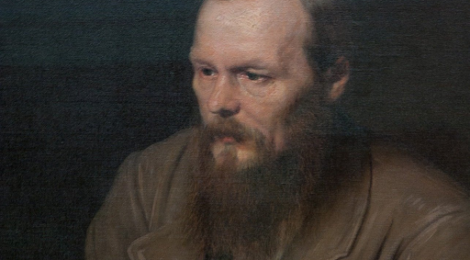
Crime and Punishment – The Limit of intellectualization
In 1866 Fyodor Dostoevsky published arguably one of the greatest novels of all time: Crime and Punishment, revolutionizing literature and introducing one of the first ever psychological thrillers. Born in 1821 in Moscow, Russia, Dostoevsky was born in fortunate circumstances, but nowhere near those of his peers like Leo Tolstoy. His father was a retired military doctor who did charity work, supporting the health of those who couldn’t afford it. It is rumoured that, when Dostoevsky was only 18, his father was brutally murdered by serfs. Though this is a rumour, its hypothetical effect would explain much of the darker tones present in his work.
Later in life, Dostoevsky would start getting involved in underground political groups opposing the status quo. He would get arrested and sent to death by firing squad, but just before he was to be shot, a guard came in claiming the tsar had forgiven them. This near death experience strengthened Dostoevsky gratitude for life, and emphasis on the individual will. It also ushered in his most provocative and memorable works.
The third novel published in the aftermath of his arrest was one of his most notable Crime and Punishment. The Story centres around Raskolnikov, a student who is entrenched in poverty, and decides to murder and rob his landlady. This action spirals Raskolnikov into a frenzy of rationalizing and intellectualizing the ethics of his actions. A large portion of the narrative is spent in his head, debating with himself, and taking on different viewpoints. All these mental gymnastics end up only delaying Raskolnikov’s sense of guilt.
The novel delves into the psychology of humans, and the power of will. Raskolnikov is given many motives for his decision, some implicit and some explicit. Many are due to familial problems, ones pertaining to finance and others to justice. All these ideas come crashing down once simple compassion comes into play. This showcases how intellectualizing can only take one so far. At the end of the day, humans want to do good. We want to help one another, and betraying that causes great psychological distress, no matter the ideology one subscribes to.
Dostoevsky’s writing is recognized as some of the best ever in literary canon. It is not only a fictional narrative, but a real investigation into what makes us human. Crime and Punishment,, is a prime example of this and is worth a read for anyone wanting to understand the human psyche.
Image Credit: Portrait of Dostoevsky by Vasily Perov 1872



